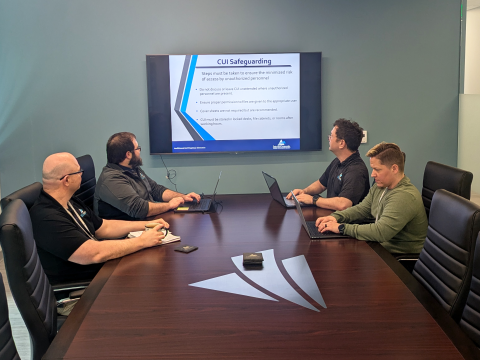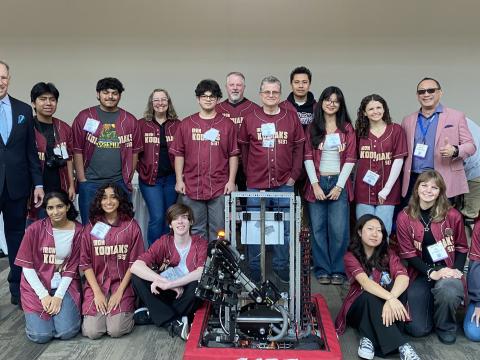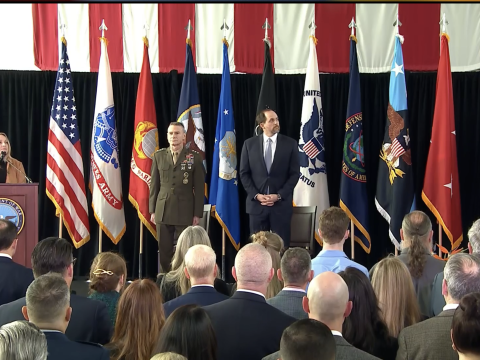Pandemic Refocuses Corporate Attention on New Employee Areas
The COVID-19 pandemic has compelled companies involved with intelligence systems and operations to rethink their work approaches to everything from hiring to clearances. Their need to continue to support the intelligence community has led them to new methods of operations that likely will remain in their portfolios long after the virus has passed into history.
A group of women executives provided their perspectives on these changes in a plenary session during the third and final day of the AFCEA/INSA Intelligence and National Security Summit being held online September 16-18. Many of them lauded the way their employees handled the pandemic crisis, and they offered new approaches that they intend to make permanent parts of their companies’ operations.
“We’re very, very fortunate to be able to keep working, to support the mission and do those things that are so important to our national security,” said Nazzic Keene, CEO, SAIC. Keene emphasized that communications was the key to successful pandemic operations, which was a point noted by the other executives. “We all did this well—we moved fast,” she stated.
We’re very, very fortunate to be able to keep working, to support the mission and do those things that are so important to our national security.—Nazzic Keene, CEO, SAIC #intelsummit20
— Bob Ackerman (@rkackerman) September 18, 2020
Tiffanny Gates, president and CEO, Novetta, said that her company did well because it invested early in a remote working environment. Other related investments that paid off included machine learning and cloud computing.
An emphasis on employees paid benefits for both staff and clients, offered Amy Gilliland, president, General Dynamics Information Technology. “If you take care of your employees, you take care of your customers,” she said.
I'm a firm believer in, if you take care of your employees, you take care of your customers.—Amy Gilliland, president, General Dynamics Information Technology #intelsummit20
— Bob Ackerman (@rkackerman) September 18, 2020
And Toni Townes-Whitley, president, U.S. Regulated Industries, Microsoft, took that even further. She discussed how empathy became an important element of workforce relations, beginning with hiring. “One of the important things we did for our team was we instituted chief caring officers,” she related.
One of the important things we did for our team was we instituted chief caring officers.—Toni Townes-Whitley, president, U.S. Regulated Industries, Microsoft #Intelsummit20
— Bob Ackerman (@rkackerman) September 18, 2020
Telework was a major issue, and it brought into play work-life issues. Keene noted that, in the first few days of pandemic isolation, there was no work-life balance. It took time for that to sort through as people adjusted to the new normal. And Gilliland observed that COVID exacerbated some of the challenges for working and raising a family. This was true not just from a woman’s perspective, but also from a man’s perspective, she noted.





Comments